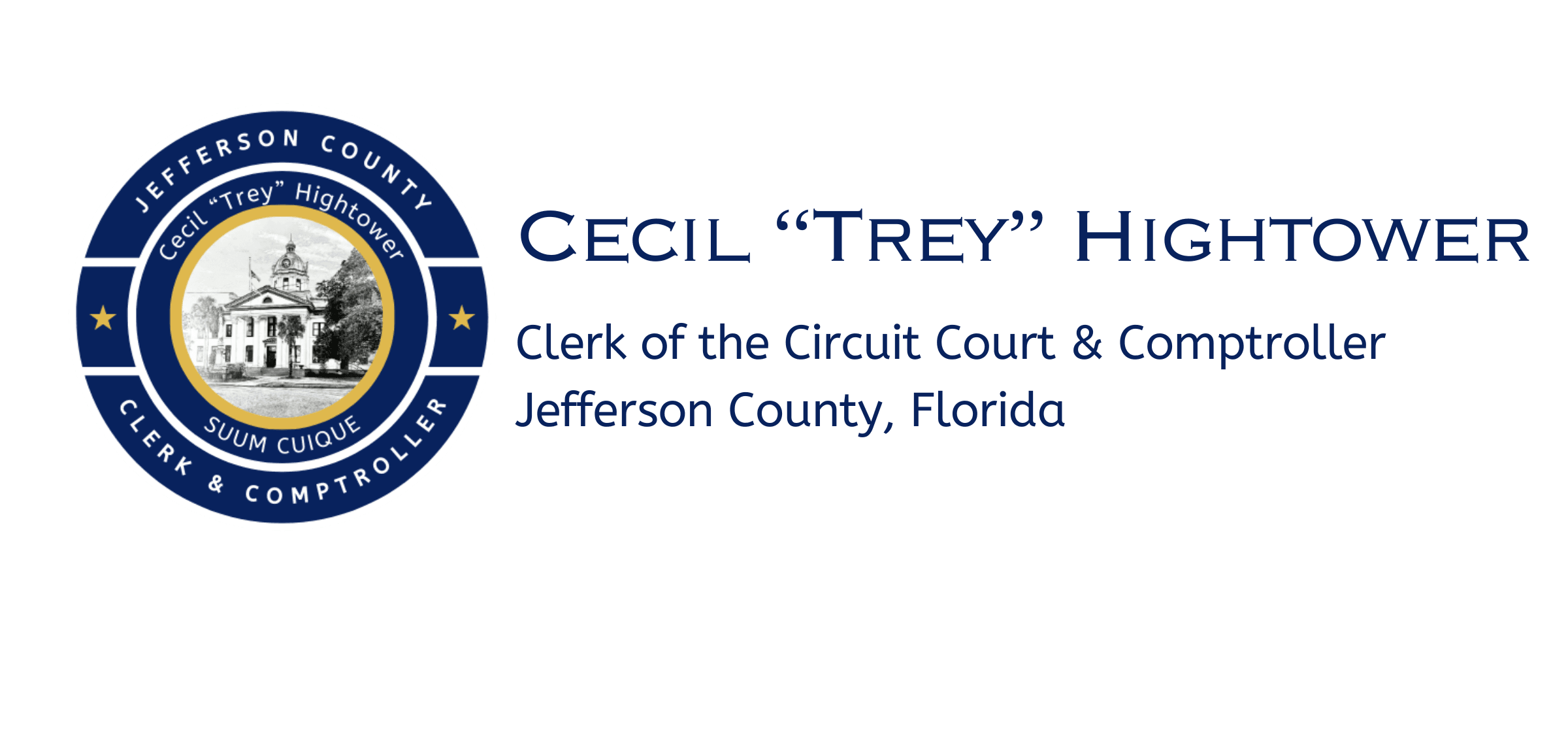Probate
The Probate Department maintains the files on probate estates, wills, trusts, and guardianships for both minors and incapacitated persons. They monitor, file, and store all pending case files and all wills that have been deposited with the Probate Department.
Probate is necessary whenever a deceased person leaves titled assets in their name alone. A party then files a petition for probate which allows distribution of the decedent's assets. Guardianships are filed for both minors and incapacitated persons. However, all Guardianship matters in the State of Florida require an attorney (Rule 5.030). An individual, through their attorney, files for a guardian to be appointed for an adult person when they believe that person is not mentally capable of taking care of himself/herself. When a guardianship petition is filed on an adult, an accompanying petition to determine incapacity is filed in the Mental Health Department. The Mental Health Department will appoint a committee to evaluate the person and file their report with the court. The exception to this would be a guardian advocate petition. These petitions are for persons who are developmentally disabled. With these petitions, there is no requirement for the ward to be examined by a committee. Therefore, there will be no accompanying Mental Health file. Guardians can be appointed as guardians of the person only, property only, or person and property.
Guardianships are also filed for minors when the minor child has inherited money or property above $15,000.00 from a deceased relative or received money from a settlement above $15,000.00. In this case, a guardian of the property is all that is needed if the minor child's parents are living. If a minor child's parents are deceased or unable to be appointed guardians, he/she may need a guardian of the person and property.
Disposition of Personal Property Without Administration may be filed without the assistance of an attorney and is handled by the Clerks in the Probate Department. These are filed when the amount of the estate does not exceed the amount of the preferred funeral expenses and the expenses of the last sixty days of the last illness. The Clerk assists the public and court by processing the forms, verifying the assets of the decedent, and preparing the order allowing for distribution.
Probate also handles Petitions to Appoint a Successor Trustee. This is a court-appointed individual who is responsible for managing another's property. If there is a request for a new trustee, probate screens the request to ensure that all trust beneficiaries have agreed to the new trustee. As in all probate proceedings, a hearing MAY be necessary since all probate, guardianship, and trust cases are presented to the court for consideration of all orders.
Guardianship Information
Guardianship is a legal procedure to protect the personal and/or property rights of an incapacitated person by having a court-appointed guardian. There are various types of guardianships. An attorney can assist you in determining what type of guardianship, if any, is necessary.
Guardianship cases are generally established when:
- Someone is declared incapacitated. An adult who isn't capable of taking care of their own financial affairs and/or their well-being.
- A guardianship is required for a minor who is the recipient of a court settlement over $15,000.
- A minor has inherited money of more than $15,000 or real property.
- There is a need for a parent to have a guardian appointed because the parent is not going to be available for a period of time, such as a mother going into the military.
An individual may choose a person to be their guardian or the guardian of their minor child(ren), before they require that guardian, by completing a Declaration of Pre-Need Guardian.
